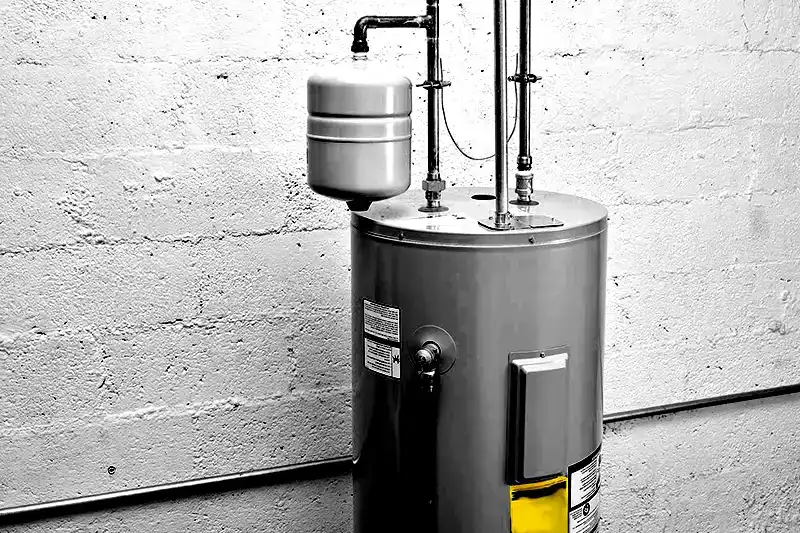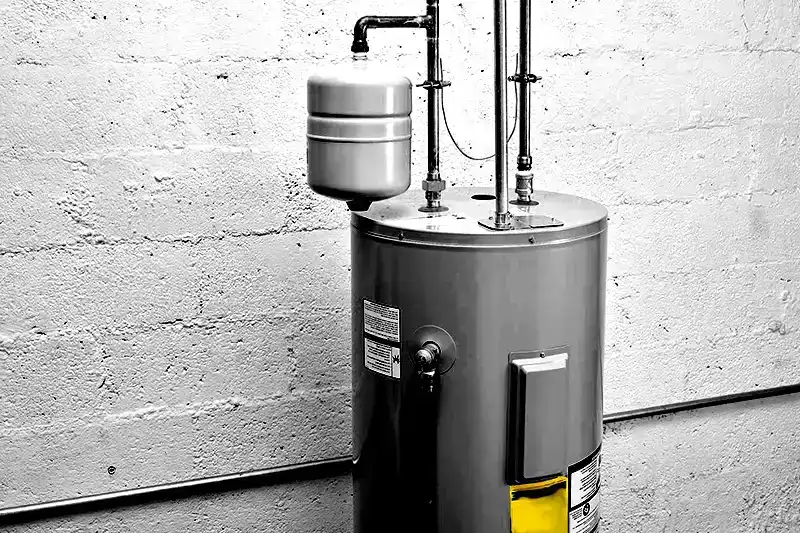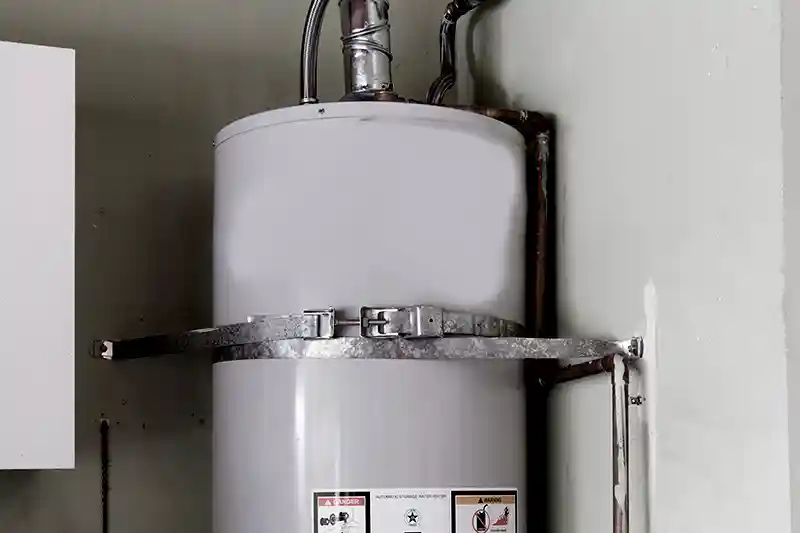When it comes to the comfort and functionality of your home, few appliances play a more crucial role than your water heater. Whether you’re enjoying a hot shower, washing dishes, or doing laundry, your water heater is working tirelessly behind the scenes to ensure a steady supply of hot water. In this comprehensive guide, we’ll delve into the various types of water heaters, the most common signs of issues, the importance of regular maintenance, and the typical lifespan of these indispensable appliances.
Types of Water Heaters
Conventional Storage Tank Water Heaters: The most common type found in homes across Southeast Texas, conventional storage tank water heaters store and heat a large amount of water in a tank. When hot water is used, cold water replaces it in the tank, triggering the heating process to maintain a constant temperature. These water heaters are reliable but can be less energy-efficient compared to newer technologies.
Tankless Water Heaters: Tankless water heaters, also known as on-demand water heaters, heat water directly without the need for a storage tank. They provide hot water instantly, making them energy-efficient and space-saving. Tankless heaters are an excellent choice for those looking to reduce energy consumption and enjoy a continuous supply of hot water.
Heat Pump Water Heaters: Heat pump water heaters move heat from the air or ground to heat the water. While they are energy-efficient, their performance may be affected by the ambient temperature. These systems work best in warmer climates and can significantly reduce energy costs over time.
Solar Water Heaters: Harnessing the power of the sun, solar water heaters use solar collectors to absorb sunlight and convert it into heat, which is then transferred to the water. Although they require an initial investment, solar water heaters can substantially reduce energy bills and have a positive environmental impact.
Common Signs of Water Heater Issues
Inadequate Hot Water: Troubleshooting and Solutions
If you find yourself grappling with a noticeable decline in hot water supply or the frustratingly quick exhaustion of hot water, it’s essential to pinpoint the underlying issues promptly. These problems often stem from a malfunctioning heating element, a faulty thermostat, or sediment buildup within the water heater tank. Taking proactive measures, such as regular flushing of the tank, becomes paramount to prevent sediment accumulation and ensure the continuous and efficient operation of your water heating system.
Strange Noises: Unmasking the Culprits Behind Unusual Sounds
Water heaters, like any other mechanical system, can occasionally produce strange noises, signaling potential issues that require attention. Popping or rumbling sounds may be indicative of sediment buildup within the tank. This sediment acts as an impediment, hindering the heating process and diminishing the overall efficiency of your water heater. To address this, consider flushing the tank regularly or seeking the expertise of professional maintenance services. By doing so, you not only eliminate the source of the noise but also enhance the longevity and effectiveness of your water heating system.
Leaking Woes: Identifying and Tackling Water Heater Leaks
Discovering a leaking water heater is undeniably a cause for concern, demanding immediate action to prevent further damage and potential flooding. Leaks can manifest due to various reasons, ranging from corrosion and loose connections to a faulty pressure relief valve. Swift attention to these issues is crucial, as it not only safeguards your property but also ensures the continued functionality of your water heating system. Regular inspections and timely interventions by professionals can help detect and resolve leakage problems, extending the life of your water heater.
Discolored Water: Unveiling the Signs of Internal Corrosion
The appearance of rusty or discolored water flowing from your taps is a visible indication of potential corrosion within the water heater tank. Corrosion poses a significant threat, potentially leading to leaks and other operational problems. Implementing a routine schedule of inspections and maintenance activities is vital to detect and address this issue before it escalates into a severe problem. By actively managing and mitigating the impact of corrosion, you not only ensure the quality of your water supply but also preserve the integrity of your water heating system.
Foul Odors: Combatting Bacterial Growth for a Fresher Experience
If an unpleasant odor emanates from your hot water taps, it may signal the presence of bacterial growth within the water heater tank. This can occur when the water heater temperature is set too low, creating an environment conducive to bacterial proliferation. Resolving this issue requires a two-pronged approach: increasing the temperature to inhibit bacterial growth and flushing the tank to eliminate existing bacteria. By addressing these factors, you not only restore the quality of your hot water but also create a more hygienic and enjoyable experience for your household.
Being attuned to the signs and symptoms associated with water heater issues is crucial for maintaining the optimal functionality of this essential household appliance. Whether it’s addressing inadequate hot water, strange noises, leaks, discolored water, or foul odors, taking proactive measures and seeking professional assistance when necessary ensures the longevity and efficiency of your water heating system. Remember, a well-maintained water heater not only contributes to the comfort of your home but also helps you avoid costly repairs and replacements in the long run.
Maintenance Requirements
Regular maintenance is crucial to ensure the efficient and reliable operation of your water heater. Here are some key maintenance tasks that our plumbers can perform in order to ensure optimal performance for as long as possible:
Flushing the Tank:
Over time, sediment can accumulate at the bottom of the tank, reducing heating efficiency. Flushing the tank annually helps remove sediment and maintain optimal performance.
Checking the Pressure Relief Valve:
The pressure relief valve is a safety feature that releases excess pressure from the tank. Test this valve periodically to ensure it is functioning correctly, as a faulty valve can lead to dangerous pressure buildup.
Insulating the Pipes:
Insulating hot water pipes can help reduce heat loss, ensuring that hot water reaches its destination without unnecessary energy waste. This is a simple and cost-effective way to improve the overall efficiency of your water heater.
Inspecting for Leaks:
Regularly check for leaks around the water heater and its connections. Addressing leaks promptly can prevent water damage and extend the lifespan of your appliance.
Adjusting the Temperature:
Set your water heater temperature to a safe and energy-efficient level. Higher temperatures can lead to scalding and increased energy consumption. Consult the manufacturer’s guidelines for the recommended temperature setting.
Lifespan of Water Heaters
The lifespan of a water heater depends on several factors, including the type of heater, maintenance practices, and the quality of water that they process. Here’s a general guideline for the expected lifespan of different water heater types:
Conventional Storage Tank Water Heaters: On average, traditional tank water heaters last between 8 to 12 years. Regular maintenance, such as flushing the tank and inspecting for leaks, can help extend their lifespan.
Tankless Water Heaters: Tankless water heaters typically have a longer lifespan, ranging from 15 to 20 years. Their longevity is attributed to the absence of a storage tank and the reduction in wear and tear associated with heating water on demand.
Heat Pump Water Heaters: Heat pump water heaters can last up to 15 years or more with proper maintenance. Since they rely on moving heat rather than generating it, they tend to experience less wear and tear.
Solar Water Heaters: Solar water heaters have a lifespan of 20 years or more. While they may have a higher initial cost, the long-term savings and environmental benefits make them a sustainable and durable choice.
Your water heater is an unsung hero in your home, providing the comfort of hot water for various daily tasks. Understanding the different types of water heaters, recognizing common signs of issues, performing regular maintenance, and knowing the expected lifespan of your appliance are crucial aspects of responsible homeownership. By taking proactive steps to care for your water heater, you not only ensure its longevity but also contribute to energy efficiency and cost savings in the long run. If you ever encounter issues beyond your expertise, don’t hesitate to reach out to professionals like Spindletop Plumbing in Southeast Texas to keep your water heater in top-notch condition.
Affordable Water Heater Repair in Southeast Texas
In the face of water heater challenges, the dedicated team at Spindletop Plumbing in Southeast Texas stands ready to provide expert solutions tailored to your specific needs. Whether you’re grappling with inadequate hot water, strange noises, leaks, discolored water, or foul odors, our experienced professionals are equipped to diagnose and resolve issues efficiently. Don’t let a malfunctioning or outdated water heater disrupt your daily routines or compromise the efficiency of your business operations. Reach out to Spindletop Plumbing today, and let our committed team ensure the continued comfort and functionality of your home or business. With our expertise and personalized service, we’re here to turn your water heater woes into worry-free solutions.
Spindletop Plumbing
409-748-5186
https://facebook.com/spindletopfixit/
Google Business Listing



